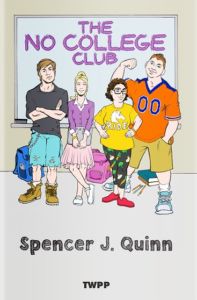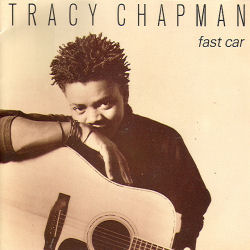On Tracy Chapman’s “Fast Car”
Five years ago I wrote an essay called “Rediscovering a Song” in which I discussed my mistaken initial assessment of “Cat’s in the Cradle,” the famous 1970s hit by Harry Chapin. I had put that assessment in a box in my mind, sealed it up, and never bothered to reopen it until many, many years later:
Our minds are like bookshelves in our bedrooms, and our memories and ideas are like the books themselves. Some people have deeper shelves, taller walls, better lighting, greater square footage. Some of us put our books in closets; others leave them strewn about the floor. Some of us put our books in boxes to make room for other books. When I rediscovered “Cat’s in the Cradle,” I was reminded of how important it is to understand that despite whatever use we get out of these boxes, they do prevent us from thinking about what’s inside. And opening a box much later than you should have may be thrilling, but it can haunt you nonetheless.

I remember when I first heard the song “Fast Car” by Tracy Chapman. I was just a kid and was unimpressed, to say the least. I didn’t like Chapman’s crunchy folk look. I didn’t like her plaintive folk sound. I didn’t like her short dreads. And I didn’t really like the people who liked Tracy Chapman — probably because they didn’t care too much for me. This, I believe, is the crux of most pop music journalism: assessing not so much the music itself but the people who enjoy it. This is why I believe a rock critic such as Dave Marsh will list old Motown hits like Marvin Gaye’s “Heard It Through the Grapevine” or the Four Tops’ “Reach out (I’ll Be There)” as among the greatest singles of all time, while dismissing enduring — and in my opinion superior — classics such as “Sweet Home Alabama” by Lynyrd Skynyrd or “Margaritaville” by Jimmy Buffet. He doesn’t particularly care for the people who like these latter two songs (i.e., ordinary white Americans), but he does care for folks who still listen to Motown well past its expiration date (i.e., older blacks who remember the Civil Rights movement, or snooty white rock critics like Marsh himself).


I was pretty darn snooty as a kid, and so “Fast Car” quickly went into a box in my mind labeled “This Song Sucks.” I taped it up real good, threw it in the back of my closet, and that was that. Any time I’ve heard the song in the 35 years since, my ears are completely deaf to it.
But as with “Cat’s in the Cradle,” I have come to reassess “Fast Car.”
It seems that country music is enjoying a resurgence nowadays. I could be wrong, since I don’t closely follow the genre. However, YouTuber Rick Beato recently listened to the top ten country songs on Spotify and loved all of them. This is significant, in my mind, for a genre that is so often mocked and derided as country is. In 2023 country star Luke Combs released a cover of “Fast Car,” which came on the radio one day as I as driving. I wasn’t paying attention, so the song got past my defenses. I began enjoying it before I realized what it was — and once I did, I was forced to reassess.

Now, Combs’ version is excellent. This is probably why it soared to the top of the charts and was named Single of the Year at the Country Music Association Awards last year. Listening to the song, however, I had to resist the mild temptation to indulge a very naughty thought: What if Chapman’s version of “Fast Car” still sucks, and it simply took a white man like Combs to bring out the best in it? I didn’t take this notion seriously, of course. Still, I went home right away and listened to the original, half-expecting five excruciating minutes of acoustic sanctimony.
Boy, was I wrong. I was fighting tears by the time the thing was over. “Fast Car” really is a great song. It has an original and easily identifiable instrumental hook. It has a chorus which incorporates elements of the song’s narrative while adding emotional depth. Interestingly, it dispenses almost entirely with rhyme. It deftly juggles themes of escape, hope, alcoholism, and heartbreak, and it manages all this through the allegory of a fast car — as well as anything by Bruce Springsteen. The song is also very real and very relatable — especially for working-class people. Perhaps this is why it was such a big hit in 1988 when it came out.

You can buy Spencer J. Quinn’s young adult novel The No College Club here.
“Fast Car” also shares something in common with “Cat’s in the Cradle”: It has an ironic twist at the end in which the song’s familiar leitmotif suddenly achieves unexpected poignancy. Unlike “Cat’s in the Cradle,” however, Chapman doesn’t beat you over the head with it. Instead, the irony emerges not through the heavy hand of a clever songwriter, but through sheer discovery. The listener experiences the song’s bitter irony, probably just as Chapman had when she was writing it. This is the very point of music, and why “Fast Car” is one of the finest pop songs ever written.
As for the elephant in the room, the fact that Chapman is black had nothing to do with my initial distaste for the song. Yet, as I grew to accept race realism in adulthood, I found it harder and harder to appreciate black cultural achievements, largely because so many of them are either negative or, thanks to affirmative action, illegitimate. Blacks are not merely a competing demographic with whites. They, as a group, are also hostile, violent, corrupt, and a net drag on civilization. For these perfectly good reasons I would rather not share a nation with them. Whatever good they bring to the table cannot possibly outweigh the stinking, overstuffed bag of negatives that they as a people drag along with them.
Sometimes it is hard for me not to resent individual blacks who lack all the manifest demerits of their race, but who still deny racial realities. We tried benevolent supremacy for many years in the South after the Civil War, and blacks ultimately rejected it. They apparently prefer absurdly high levels of crime, illegitimacy, and drug addition to the orderly lives that most of them enjoyed prior to “integrating” with whites — all in pursuit of the demonstrable lie of racial equality. I have no respect for that.
As a result, I will look askance at anything black people accomplish in fields beyond their natural purview of sports, jazz, dancing, and the like. But these accomplishments do happen, and for me to remain sane and honest I have to draw unbreakable lines between macro truths and micro ones — and still respect both. Inventor and computer scientist Mark Dean did remarkable things at IBM. This is a micro truth. So are the classical music recordings by Wynton Marsalis and Kathleen Battle. So is the civic courage of Allen West, or the chess commentating of Maurice Ashley, or the comprehensive honesty of Lipton Matthews.
Being a race realist means one must admit the good as well as the bad about all races. This, of course, does not override a person’s right to prefer his own race to others and to protect his racial interests. But it also does not override a person’s right to appreciate accomplishments from other races. “Fast Car” falls into this category, and Tracy Chapman deserves all the credit in the world for it.
I nevertheless can’t help but feel that there is an additional layer to the song, one entirely unintended by its author. The song is about a woman who makes a deal with a man who has a fast car. They team up to escape their bleak lives in order to build a better one together somewhere else. She revels in the thrill of freedom and a sense of purpose while riding with him. She has the seductive feeling that she could actually be someone. But time is not on their side. They have to make a decision: “Leave tonight, or live and die this way.”
In the end they do leave together, and ultimately, he lets her down. She realizes too late that all the thrills he had given her were ephemeral. They weren’t real. Thus, by the song’s end she once again tells him to make a decision, but this time it is his decision, not hers: get in his fast car and leave, because she cannot live and die this way.
Doesn’t this also describe the relationship between whites and blacks in America? Whites have accepted blacks as equals and as co-citizens in the country their ancestors had founded and fought for since the mid-1960s. What has it gotten us? A lot of thrills, sure. Blacks can enthrall us with their sporting prowess. They can make us marvel at their dancing. They can entertain us with their music. They can make us laugh at their jokes. They can tell us what is hip and what is cool. Yes, their car is quite fast. But it is ultimately taking us to a bad place — a place of poverty, violence, degeneracy, and ruin. This becomes clearer and clearer every day.
White people will need to make a decision very soon: “Leave tonight, or live and die this way.”





